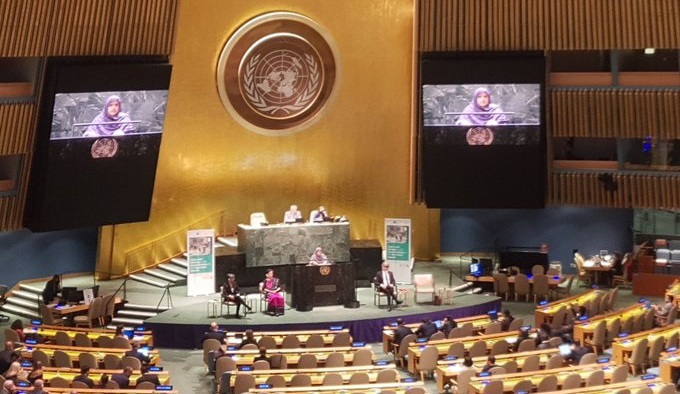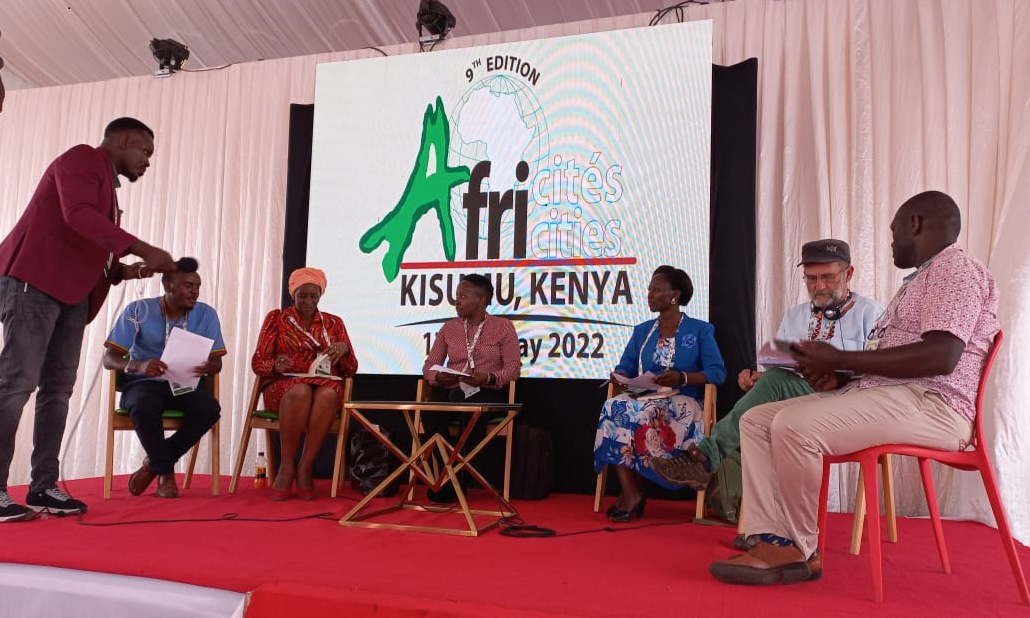Source: The Wire
“[T]he practice of forced evictions constitutes a gross violation of human rights, in particular the right to adequate housing. UN Commission on Human Rights
Forced evictions violate international law, yet many governments justify them on the grounds that they are essential for the development of infrastructure or in preparation for international events. The tragic outcome in most of these cases is that the poorest and most vulnerable members of society are placed at even greater risk.
AI has documented cases from across Africa, including Nigeria, Zimbabwe and Equatorial Guinea (see below).
In Sudan, approximately 1,800,000 people, driven from their homes by prolonged conflict, face forced eviction from camps around the capital, Khartoum. They are often left on barren land in the desert (see the Wire May 2006).
In Ghana, hundreds of residents from the Dudzorme Island (in the Digya National Park) were forcibly evicted from their homes in 2006. On 8 April, some evictees were reportedly forced into an overloaded ferry, which subsequently capsized, leaving around 30 people dead according to official sources, while many may never be accounted for.
In the last year in Kenya, tens of thousands of people, including Indigenous peoples, were violently evicted from forests with no resettlement arrangement. Many informal settlements in the capital, Nairobi, have been subject to intermittent demolitions. However, Kenya is adopting guidelines to prevent and remedy forced evictions.
Forced evictions in Angola’s capital, Luanda, since 2001 have left thousands of people homeless when their homes were destroyed. Police and security guards have shot at, beaten and kicked residents, including pregnant women, and arrested those who tried to resist the evictions (see the Wire May 2006).
In May, AI called on the African Commission to adopt a resolution condemning the practice of forced evictions in Africa. AI also calls on African governments to acknowledge that adequate housing is a human right, and to publicly commit to an immediate halt to forced evictions.
Thousands made homeless in Nigeria
Hundreds of Nigerians are still sleeping out in the open more than a year after their homes were smashed to pieces by the authorities. In April 2005, bulldozers and armed police descended on the Makoko community of Lagos, obliterating large parts of the community in three days. Homes, churches, a mosque and a medical clinic were all destroyed. About 3,000 residents, many already destitute, were left homeless.
On the day the bulldozers came, said one 17-year-old resident, I went to the market in the morning and before I came back there was fire everywhere. There was nothing left of my house. I was only carrying the clothes that I was wearing. I have nothing else left. I saw how pigs, cows and chickens were burnt to death.
Eyewitnesses told AI how, after razing concrete and iron-sheet houses to the ground, officials set fire to what remained, thus ensuring that materials could not be re-used to rebuild homes.
Makoko is situated next to a large bridge, one of Lagos” main transportation throughways. Its convenient location makes it an attractive proposition for property developers, and has substantially increased its value. It is Makokos poorest who must pay the heaviest price for this.
Since the turn of the century, more than 2 million people across Nigeria have been forcibly evicted from their homes. Not only have they been made homeless, but many have been beaten, arbitrarily arrested and left without adequate food, clean water or sanitation. Some women told AI that they had been raped.
Nigeria is a party to international human rights treaties, including the International Covenant on Economic, Social and Cultural Rights, prohibiting forced evictions. The UN Commission on Human Rights has recognized the practice as a grave violation of a range of human rights, particularly the right to adequate housing. Yet Nigeria continues to ignore its duty under international law.
Meanwhile, women give birth in the rubble of Makoko where the only homes are those that dwell in the memories of its lost residents.
Oil fuels evictions in Equatorial Guinea
Rufina, a widow with three children, was forcibly evicted from her home, in the Atepa district of the capital, Malabo, on 22 July.
She was already at work when the then Prime Minister and the Minister of Urban Planning arrived with a demolition team at 8.30am. They were accompanied by soldiers, who slapped and shoved anyone who complained or resisted the demolitions.
Rufinas neighbour phoned, telling her to come home urgently, but by the time she arrived at midday her house and all her possessions had been destroyed. Her children, all aged under 10, were driven out of the house.
Recent forced evictions in Malabo have left hundreds of families homeless and AI fears that more will follow.
Equatorial Guinea is Africas third main oil producer. The new wealth from recent oil production has led to pressure on the land for commercial purposes, as well as luxury housing. President Teodoro Obiang Nguema has on several occasions publicly expressed his wish to eradicate chabolismo (shanty towns) which he says make the city look ugly and may put off investors. However, many of the houses demolished recently were solid structures in well-established neighbourhoods where the majority of the occupants had titles to the land.
Marianos house in Atepa district was also destroyed on 22 July along with about 60 other similar houses, leaving more than 600 people homeless. His wife and their four children had lived in their large wooden house for two years. The title to their land had been granted by President Obiang.
The authorities justified the demolitions claiming that the land was needed for the construction of a road. But the road has already been built and the houses were 80-90 metres away. There was no consultation with the community, no prior warning and no compensation. When people from the community asked those marking the houses for demolition in April for a formal committee to discuss the situation they were told to go and live in the forest like animals.
Forced evictions are contrary to Equatorial Guineas expropriation law and to the Constitution which protects the right to property and to a home. The reason often given for demolitions is to use the land for public utility developments. However, no such use has so far been made. The land is frequently usurped by the President, his family and other members of the government to build luxury homes, supermarkets or other businesses for themselves.
The densely populated district of Comandachina in the city of Bata, is currently under threat. Situated near President Obiangs palace, he has reportedly said that he does not want to look at those chabolas on his way home. In April he ordered residents to build two or three floor houses, giving them three months to comply or vacate their properties. Forced evictions and demolitions could begin at any time.
No justice for victims of forced evictions in Zimbabwe
In May 2005 the government of Zimbabwe launched Operation Murambatsvina (Drive Out Rubbish), a programme of mass forced evictions and demolitions, which resulted in an estimated 700,000 people losing their homes, their livelihoods or both. The victims were among the poorest people in Zimbabwe and as a direct consequence they were driven deeper into poverty and exposed to further serious human rights violations.
Under international law the government is obliged to ensure access to effective judicial or other appropriate remedies for victims of human rights violations committed during Operation Murambatsvina. The government claimed it would provide housing to those who had lost homes, but a much publicized rebuilding programme Operation Garikai/ Hlalani Kuhle (Better Life) has in reality achieved almost nothing for the victims.
During a recent visit to nine sites, AI found that only a tiny fraction of the victims of Operation Murambatsvina have benefited from the rebuilding programme.
By May 2006 only 3,325 houses had been constructed under Operation Garikai/Hlalani Kuhle compared to 92,460 housing structures destroyed during Operation Murambatsvina. Construction in many areas now appears to have stopped. The majority of the houses are uninhabited, and uninhabitable. Many are unfinished lacking doors, windows and even roofs. They do not have access to adequate safe water or sanitation. Moreover, despite their inadequacy, they are rarely available for purchase, and even if offered, are largely unaffordable. The process for allocating the new albeit incomplete houses lacks transparency and the criteria used to decide who gets a house or plot are unclear. Houses have been allocated to people who did not lose accommodation during Operation Murambatsvina.
Operation Garikai/Hlalani Kuhle is the only government response to the gross human rights violations perpetrated under Operation Murambatsvina. No other assistance or remedy has been offered by the government to the hundreds of thousands of victims. As such, Zimbabwe is clearly violating its obligation to provide effective remedy and reparation to individuals whose human rights have been violated.
The government has also hindered victims attempts to help themselves, frustrated humanitarian efforts to provide emergency shelter, and subjected some of the most vulnerable people to repeated forced evictions.
AI considers that the government, by such actions, has compounded its own failure to provide an effective remedy to the victims.
Until forced evictions are recognized as serious human rights violations in Zimbabwe and elsewhere in Africa and the victims assisted to rebuild their lives, forced evictions will continue to push hundreds of thousands of people deeper into poverty, and lay the foundations for further human rights violations.
See Zimbabwe: No justice for the victims of forced evictions (AFR 46/005/2006), Zimbabwe: Quantifying destruction satellite images of forced evictions (AFR 46/014/2006) and the Wire April 2006. To find out what you can do to help, go to amnesty.org/actnow


